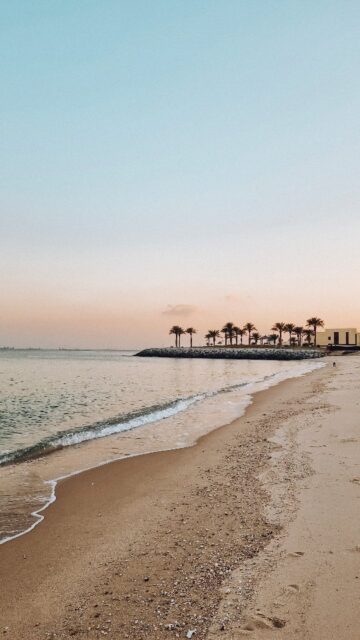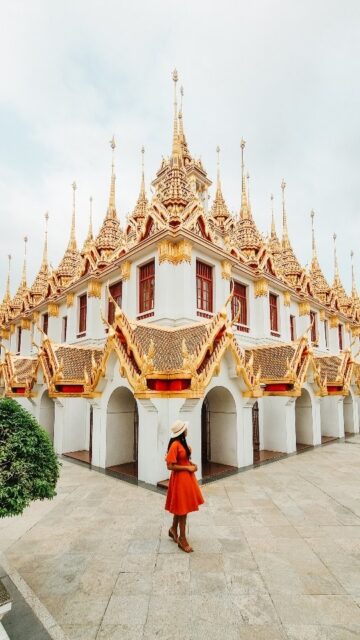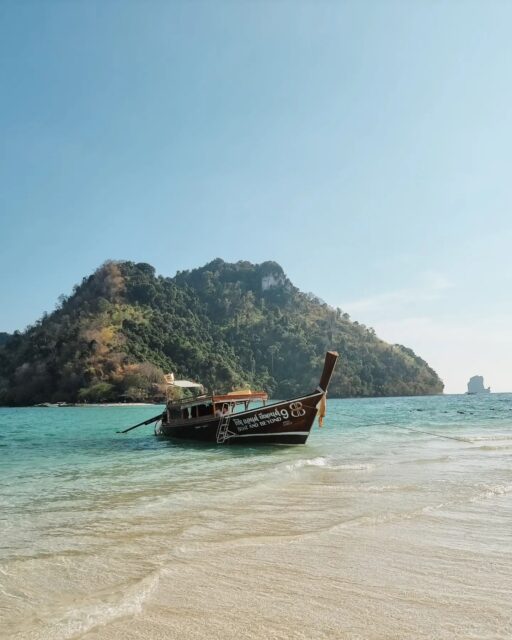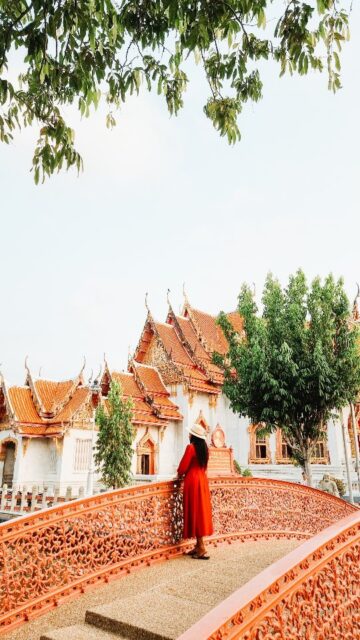I recently had to renew my US visa after the previous one expired. Since I last applied, the US government and immigration officials have reinstated the interview waiver program for applicants who meet the waiver qualifications.
The last time I applied for this visa, I did so in Lagos. Because I was applying in Nairobi this time around, I did not qualify for the interview waiver and had to go through the entire application and interview process again.
Luckily, not much has changed between then and now – that is if you don’t consider the long wait times to secure an appointment for the interview. In the past, one could schedule an appointment in mere weeks. These days, available appointments can be years away and applicants needing expedited interviews would need to apply to get a closer date.
My application in Nairobi was no different. I had to wait a year to be interviewed and even then, the dates were shifted twice by the embassy. Eventually, I was able to attend the interview and get my visa. Therefore, I am updating this post to reflect the current application process and requirements.
PS: Having a USA visa in your Nigerian passport can make your travel life easier in some cases. For one, in addition to the countries you can visit visa-free (or get a visa on arrival), you have access to 17+ more that would offer a visa on arrival or visa-free entry if you have a valid US visa. You might also find certain application processes easier. So even if you don’t intend to travel to the US soon, it doesn’t hurt to always have a valid visa in your passport.
What's Covered in this Post
Applying for a B1/B2 Tourist US Visa in Nigeria – The Process

The first step to applying for a US visa begins with a passport photograph. A soft copy is essential to have as it is needed when filling out the DS-160 form online and during the interview process. The passport must meet the site’s requirements before it can be uploaded successfully.
You can then proceed to fill out the DS-160 form. Your interview begins here so it is important to ensure you fill in only correct and accurate information. Once the form is submitted, you cannot make any changes. Save and print out the confirmation page after submission. You will need this to schedule an appointment date. You are also required to take this with you to the interview.
Applying for a B1/B2 Tourist US Visa in Nigeria – Updating your DS-160 Form
Now, because wait times have increased drastically, it is understandable that certain details you filled out in your form might no longer be accurate at your interview date. While you cannot edit your previously filled form, you can complete a new one. If your form is over 6 months old, you must complete a new one. Be sure to print out the updated confirmation page to bring to your interview.
Applying for a B1/B2 Tourist US Visa in Nigeria – Next Steps…
The next step is to pay the non-refundable visa fee. At the time of this writing, it costs $160 (now 2024:$185) for a tourist visa. The fee has to be paid in naira at any GTBank branch or online if you own an account with the bank. The bank uses the current official exchange rate, so the naira value will change as the rates do. Print out the receipt after you’ve paid. You would need the payment code to schedule your interview appointment and also to take it with you to the consulate or embassy.
After you’ve filled out your form and paid the visa fee, you can go ahead to schedule an appointment. You can either do so online or by contacting the provided call centre number. The first time I applied for a visa, the wait time was only a few days. These days, wait times can be over a year. If you’re concerned about long wait times, it would be best to apply as early as possible.
So you’ve scheduled your appointment and you have an interview date. Now, the second phase begins!
Where is the US Consulate/Embassy in Nigeria Located?
The US consulate is located at 2 Walter Carrington Crescent, Victoria Island, Lagos while the embassy is located at Plot 1075 Diplomatic Drive, Central District Area, Abuja, Nigeria.
US Visa Requirements for Nigerian Citizens – What Documents Should I Bring to the Interview?
It is compulsory to have the following documents when you go to the consulate for your interview;
- International passport – with a minimum of two free leaflets and six months’ validity
- DS-160 confirmation page
- Confirmation of visa appointment date
- Visa payment receipt
- 2 recent photographs on white background (50mm x 50mm) taken no longer than six months earlier
In addition to these documents, you should bring any other documents to support your application. These include, but are not limited, to the following;
- Letter of invitation
- Previous passports
- Proof of funds (I printed out my bank statements and payslips for three months)
- Letter of employment
My Experience in Nigeria: At the first security checkpoint, we were asked to present the DS-160 and appointment date confirmation as well as the visa payment receipt. No one actually checked these and even if they had, it would have been a redundant process. Officials inside the building already had details of everyone who was to be interviewed. In any case, it’s better to have these documents and not need them than need them and not have them.
PS: You’re not allowed to bring any electronics and mobile devices into the building. There is a small community outside the consulate where you may be able to keep your items for a fee. I tend to always avoid these guys because they charge so much money. If you can, you should too.
In Nairobi, applicants can leave their belongings in locked boxes at the entrance.

US Visa Interview in Nigeria – What Kind of Questions Should I Expect?
After going through security and entering the building, you will be asked to stand in line and wait to be attended to. There are usually three queues. The first is to get details of your passport (I guess). Your passport is collected, scanned and tagged. The second line is to collect your biometric details and the last is for the interview.
The interviewer would ask questions based on your application and the information you have entered in the DS-160 form. The questions may include, but are not limited to the following;
- What are you going to do in the US?
- Where exactly are you going to?
- How long would you be there?
- Who’s inviting you?
- What is your relationship with this person? Where did you meet?
- Is it a romantic relationship?
- Where would you be staying?
- Do you have family in the US?
- Are you married?
- Are you travelling alone?
- Who is paying for the trip?
- Where do you work?
- What do you do for them?
- How much do you earn?
- Have you been out of the country before? What for?
The goal of the interview is to establish a genuine reason for travel, to confirm that you have sufficient ties to your country and you would return after you’re granted a visa. You should answer these questions genuinely. Be confident and be specific when responding.
US Visa Interview in Nigeria – How Should I Respond?
For example, don’t answer the first question by saying;
‘I just want to go for tourism’
Instead, you could say;
‘I would love to visit my very good friend, Mark, and spend some time with his family. I would also love to go to New York to visit some of the sites I’ve heard so much about. Like Times Square, Central Park and the Statue of Liberty’

PS: Some of these questions can spark an array of several others. If you’re going to see your biological uncle, for example, you should know if he is married or not. If he has children and how old they are, where he works and so on…
Why are Nigerians Denied a Visa
Failure to answer questions or give answers that are inconsistent with what you previously stated in your form may result in application rejection.
The interviewer may also reject an application if they are not convinced that you have enough ties to your home country or sufficient funds to cover expenses for the trip. A lack of travel history may also result in denial. It is rare but not impossible to see the US grant visas to first-time travellers (who are sponsoring the trip themselves).
As I mentioned in this article, you stand a better chance if you have a good travel history. Here’s an article to learn how to build a strong travel history.
Tips to Increase My Chances of Getting a US Visa in Nigeria
In addition to the tips I have shared in this article (Dos & Don’ts of Visa Applications in Nigeria) and this one, you should ensure that you have entered accurate information in the online form. If certain things like travel dates have changed, let the interviewer know the reason for this change.
Having a good job or business matters too. If someone else is covering the expenses for the trip, this also applies. You can read more about US Visa Interviews here.
What Next?

The interviewer would tell you whether you qualify to get a visa or not at the end of the interview. If you do, you will be asked to pick up your visa in about 3-4 working days.
My US Visa Application was Rejected. When Can I Apply Again?
You can resubmit your application at any time after refusal with proof to show that some things have changed since the last time you applied. You would also have to file a new visa application and pay the fees again.

That’s it for the entire process of applying for a US Visa in Nigeria. I hope you find this guide useful. Feel free to share your visa experience with me or ask any questions you might have in the comment section.














I really appreciate you for the guide the rules and regulations which you explained very well I enjoyed every bit of it a very good guide for fist timer kudos to you
Thanks for your comment, Kehinde! Glad you found the article helpful!
Please do I need a visa to Ghana? And how can I apply, I live in Abuja, I intend going by road then get a return air ticket…please help sister Amarachi
Hi Grace. you don’t need a visa to visit Ghana. Just have your International Passport and Yellow Fever Card Certificate.
As for affordable places to stay in Ghana, you can check for options using Booking.com, Jumia Travel, Airbnb or Couchsurfing…
I’ll be in Ghana hopefully this February so where can I get a good hotels at affordable rates also a good places for sightseeing
I’m excited and hope to be like u when I grow. I love to tour round the world if not for the financial constraints.
I am super excited that found this site…. Interesting, I feel like traveling round the world
Quite detailed . Will bookmark this page. I might be needing this guide soon.😁
Hi Amarachi, I travelled to ghana last year and Benin republic this month. I honestly don’t know why I was denied. He didn’t say why.
Thank you Amarach for this post. It seems you knew I needed it. Lol.
I have an interview with the US embassy in a few days time. Though I have been denied twice in the past. The last denial was 10 months ago, and as at then I had no travel history but now I have two travel history on my passport. One on my old passport, second on the renewed passport. I want to ask if I should take both passport i.e the old & New along to the interview venue or should I just go with only the new passport?
Also, wish me best of luck too. Cos I really want to tour the US.
Hi Dayo, you should take both passports for sure. If you don’t mind me asking, which other countries have you visited? On what grounds were you denied in the past? Do you know?
Best of luck with the interview!